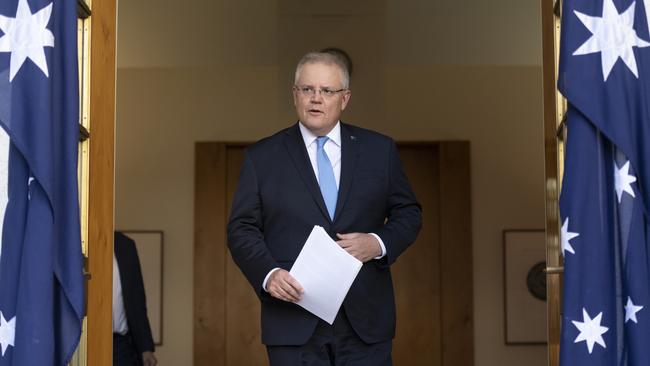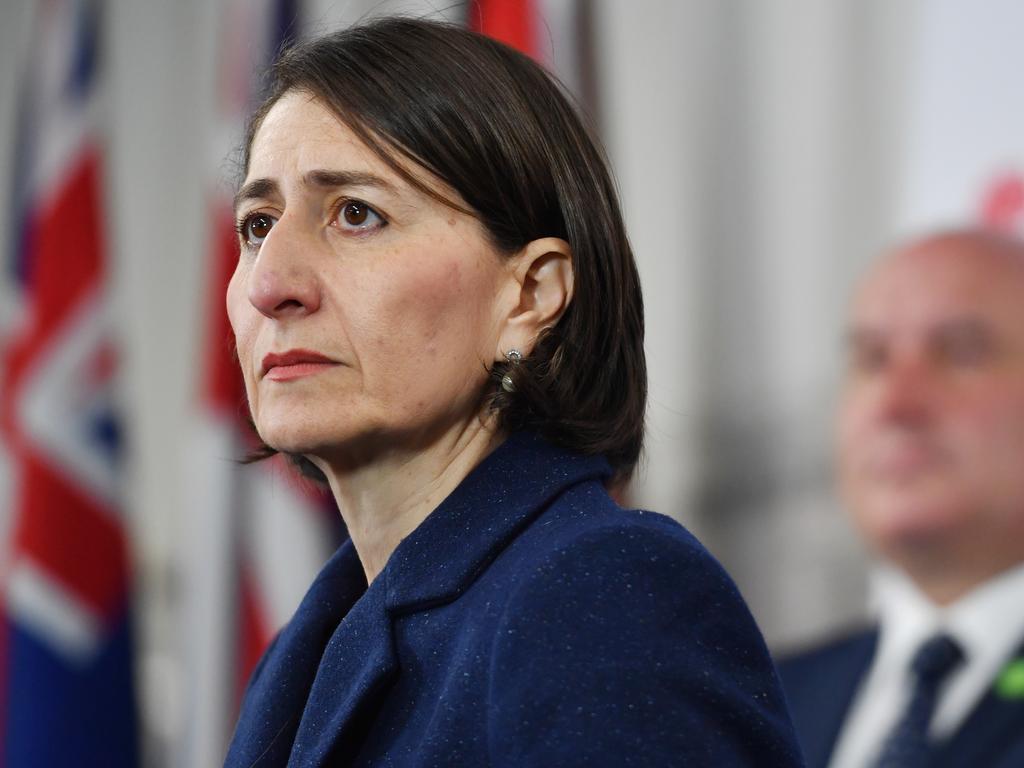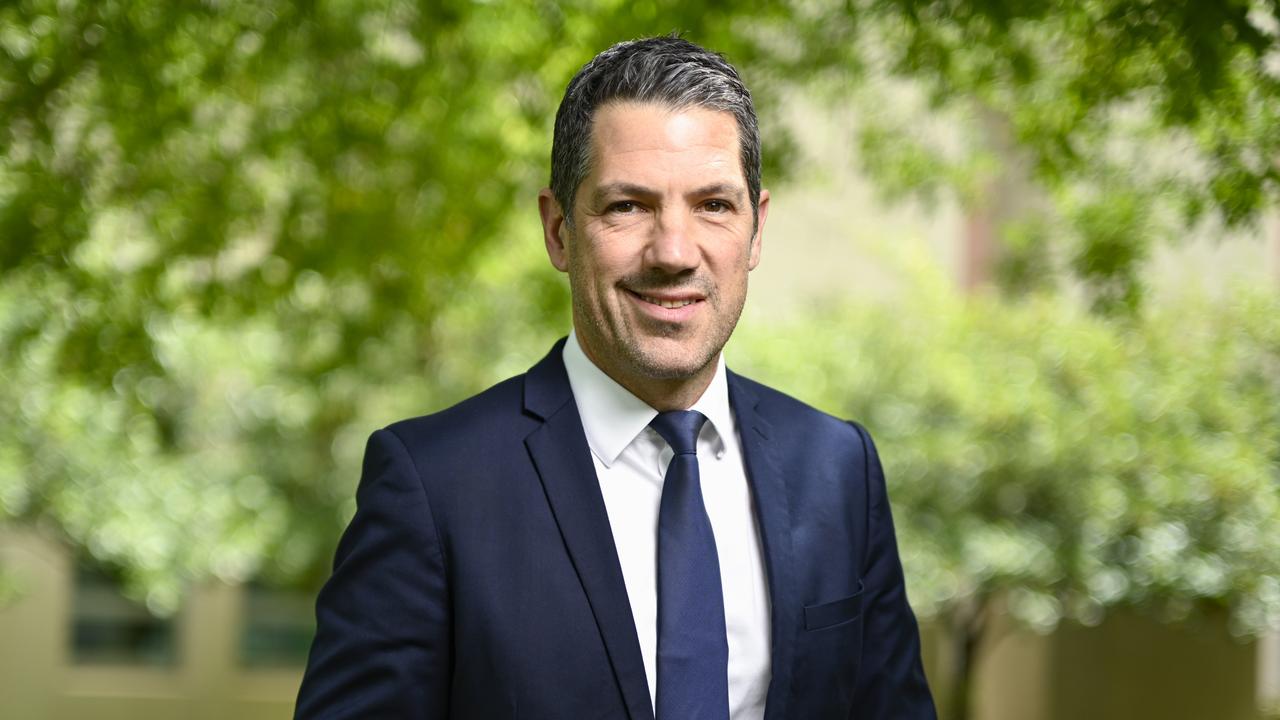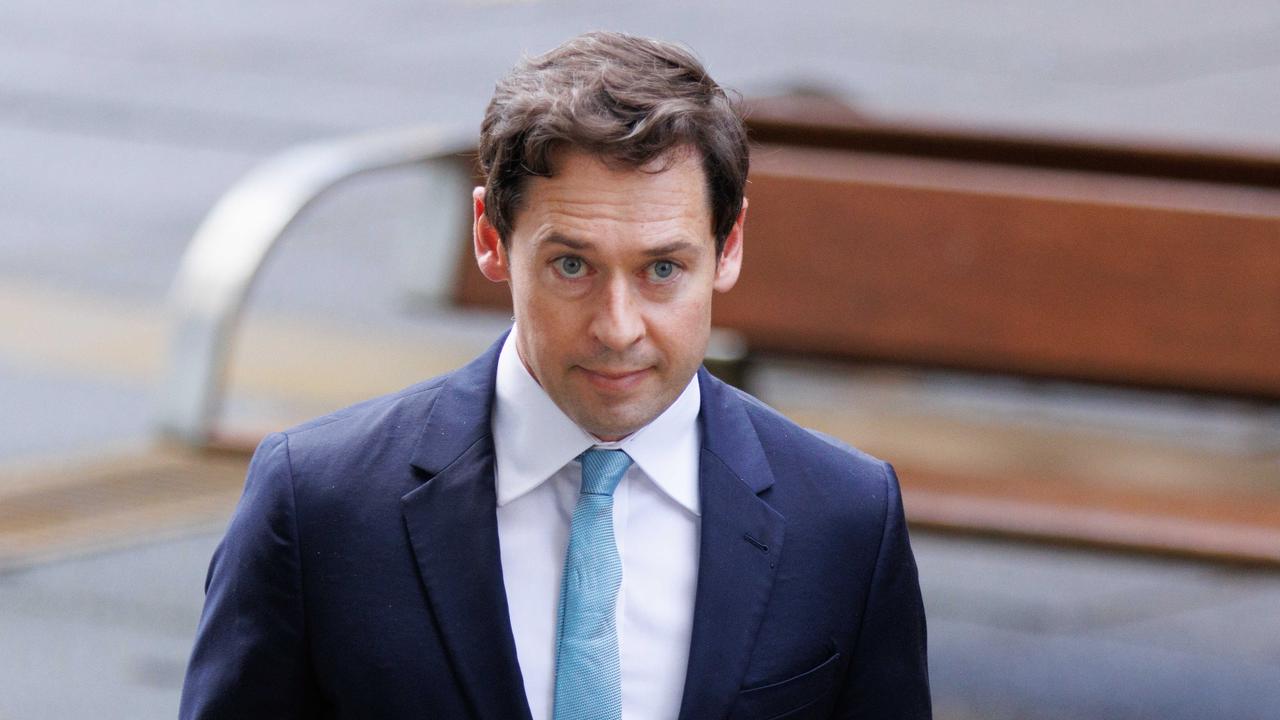Scott Morrison’s post-pandemic powerplay
Scott Morrison urges new industrial compact to forge a remodelled economy as nation emerges from pandemic.

Scott Morrison will urge a new industrial compact between workers, employers, unions and government to boost employment and forge a remodelled economy after the pandemic, while signalling a new and more effective federation emerging from the crisis.
Ahead of a headland speech next week expected to kick off the debate over longer-term reform, the Prime Minister said the country could not return to the pre-COVID-19 system that had undermined productivity and had begun to show signs of “sclerosis”.
But Mr Morrison also warned against getting ahead of the immediate crisis, signalling more economic pain was coming and the first priority was to avoid a second-wave infection as the government moved to reboot the economy.
“The scale of the task is huge and we cannot get ahead of ourselves,” he told The Australian.
“And I fear the ‘right here, right now’ is getting overlooked. I’m very concerned, as are all the premiers and chief ministers and the Chief Medical Officer.
“We are no more immune to it than we were three months ago. The difference is we have built in strong protections in the health system and we have taken quite a hit to the economy to get it under control for now, but that can quickly change if people go back to doing things the way they were doing it before.”
The Prime Minister’s call to arms for a united approach to reshaping the economy comes as an exclusive Newspoll conducted for The Australian shows a surge in support for the collective government approach in handling the economic crisis and the strengthening of the public health system to cope with the health crisis.
More than 75 per cent of voters claim confidence in the health system, while those backing the government’s approach to managing the impact on the economy have shot up from 47 per cent to 60 per cent despite the release of “devastating” unemployment numbers.
The Newspoll also reveals that Australians support the government’s cautious approach to reopening the economy, with almost three-quarters of voters claiming to be more concerned about moving too quickly in lifting restrictions for fear of a second viral outbreak, even if it means further short-term damage to the economy and job losses.
On the broader economic reforms to the economy that would be needed on the other side of the pandemic to tackle the jobs crisis, Mr Morrison said changes to the existing structures and practices were needed across the spectrum of how businesses and their employees operated in a new environment.
He signalled that while the government might ultimately need to mandate policy reform, he hoped that industry, employers, employees, community groups and unions could unite to accelerate the need to get people back into work.
“There has been a rigidity in the relationships between employees and employers prior to going into the crisis,” Mr Morrison said.
“What’s important is that we are able to have a set of new arrangements in place and they can both do well and not be held back.
“Over a long period of time our economic success has built up a momentum, but it was also building some sclerosis … and the ability to deal with that was very limited because of the success we had.
“Australia’s economy has been very resilient … you could argue that has not motivated people to seek new and better set of arrangements. It has left employees and employers to settle for what was there and not reach to the next level where they will both genuinely benefit.
“Businesses have to have a competitive cost base. They have to be able to draw on the best of the skills base that match their needs and they have to be engaged in technology and they have to diversify into markets that will sustain them.
“Employees will be asking for a more flexible workplace … it works both ways, it’s a two-way street. There are things that have happened in workplaces in the past few months that may never have happened. There will be a new sense of urgency … with the economic devastation that has befallen us.”
While not overstating their influence, Mr Morrison said the union movement had shown it was willing to be a positive participant so far and said he was prepared to work with the ACTU if it was committed to delivering more jobs.
“I’m optimistic about the unions … they have engaged very positively and we welcome that,” Mr Morrison said.
“But let’s just see how much we can line it up … ultimately governments need to do things and make decisions.”
The Prime Minister said he had low expectations that the Labor Party, however, would be a willing partner in economic reform, accusing Anthony Albanese of reverting to a “fighting Tories” mentality at a time when the union movement was being constructive.
“The government is not anticipating a constructive bipartisanship (from the opposition) on what is needed to get business up and running and employing people … they’ve made it clear they think driving up wages artificially, higher taxes, and big spending programs is the way to achieve this, and that is completely at odds with how the government sees it,” Mr Morrison said.
“What the opposition does is up to them but they seem to be returning to a ‘fighting Tories’ type.
“What I’m trying to say is that we are approaching it in a consultative way — a constructive way. It’s not a combative approach. I get the impression they want to turn it onto a combative one … and they have indicated that clearly in trying to undermine the JobKeeper model.”
With premiers and chief ministers expressing support to reform the federation under a national cabinet model, Mr Morrison said this would be part of the discussions down the track and said there was an opportunity for a new and more “efficient and effective” federation.
“I think premiers and chief ministers agree but before we rush to that, we are all very conscious that if you are going to replace something you need to be clear about what you’re going to replace it with,” he said.








To join the conversation, please log in. Don't have an account? Register
Join the conversation, you are commenting as Logout